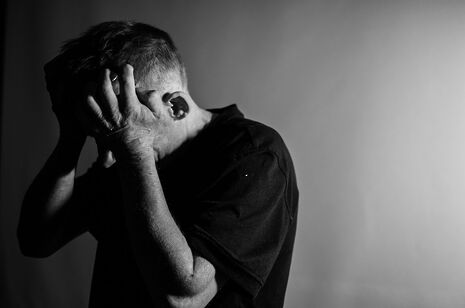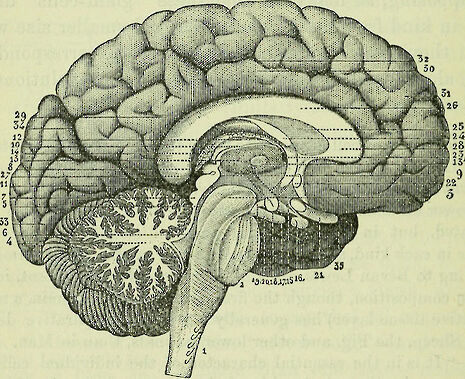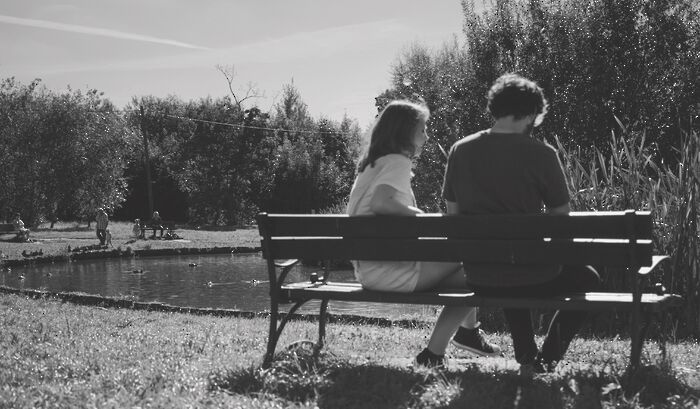The hidden symptoms of mental illness
Anyone can suffer from mental health problems. Often, they can affect those we least expect. Don’t suffer in silence

Content note: this article includes discussion of anxiety, depression, self-harm, suicide and eating disorders.
Imagine a person with depression. What do they look like? Are they pale-faced, with rings under hollow eyes? Are they silhouetted with their hands pressed against their forehead? These the images first which appear if you search for ‘person with depression’. They are simple and powerful. But they are stereotypes, collective short-hand for a condition which often defies easy description.
Now try again for someone with anxiety. What about paranoia?
These stereotypes are widespread. They are repeated in our novels and on our screens. They resurface whenever someone tells me that they “would never have expected” me to have anxiety. But they are harmful. They can help to invalidate the experiences of people who are already suffering – who might feel that they do not deserve attention because they don’t seem to fit these definitions.
Most symptoms of mental health problems are invisible. And because of their invisibility, they are more likely to create self-doubt. If you went to the doctor with a broken arm, you would be unlikely to worry that he or she wouldn’t believe it was real.
My scars are there, but they are smaller than most
I am in no way trying to downplay the pain caused by physical self-harm, such as cutting. Often when people cut themselves, it is a scream for help or an attempt to feel something ‘real’, having heard again and again that their experience is “just in their head”. I have friends who only received serious medical attention after demonstrating their trauma on their bodies. It seems that we find it easier to understand pain if we can see it literally in front of us.
Unless you look at me very carefully, you are unlikely to find signs of my mental health problems on my body. I have no scars on my arms. I am reasonably fit. I eat well.

Possibly, you might notice me touching my face to see how fat it feels, or biting the inside of my mouth. Look at my hands and find the areas on my fingers I have chewed. Look at the stretch marks underneath my armpits after I spent a summer weightlifting six days a week. My scars are there, but they are smaller than most.
In their different ways, I consider these all to be forms of self-harming behaviours. Often mine began as coping mechanisms, but developed into something else. And, because many of them are not physical at all, it can be difficult to catch people’s attention. A scar is far more likely to elicit a reaction than a punishing, 12-hour library marathon.
My anxiety can feel all-encompassing. Sometimes, the hardest thing is to tell myself that my problems do still matter. Just because I cannot see them does not mean they will go away.
Every time, I think it is a way of making myself better
Instead, they come in a vicious, vice-like cycle. Prolonged periods of rising stress lead to days of depression. Then, when all I want to do is withdraw, my anxiety tells me that if I do nothing, everything will become worse. I’m caught between wanting to disappear and feeling as if I need to do everything humanly possible. Life becomes all-or-nothing. And I am caught in the gap, pulled so taut it seems that I could break.
Sometimes, I work myself into a state of incoherence. I read compulsively; I make hundreds of pages of notes; I pick over essay plans as if I’m possessed. I once read the complete works of Shakespeare in three weeks. The results of this can be impressive. It can make me seem like I’m doing well here.
It seems that this university – with its indescribable intensity – exposes people’s dormant issues and insecurities
Sometimes, I will exercise beyond exhaustion in an attempt to forget. This can occur in short bursts – or it can last for months. During my year out, I weight trained six days a week, taking protein and creatine. The more I built my body, the worse I felt. I have starved myself of carbohydrates. I pick at my skin, feeling for fat, pressing and pulling. Every time, I think it is a way of making myself better.
Sometimes, I will become desperately lonely. I can feel as if I am detached from the world, as if all my friends secretly hate me and every conversation will expose me as faulty. Even when I’m surrounded by people, I feel alienated. It is like an ache in my marrow. So, after desperately organising to see friends, rushing around in the hope I might get better, I only feel worse. I realise that, in fact, I don’t want to speak at all.
Some reasoning part of me remains aware of all of this. I know that I am thinking irrationally. I know that if I could hold myself back, breathe and think, I might feel better. But in these moments, I feel like I can’t stop.
It is at this point that suicidal thoughts usually appear. For me, they are never actual plans – instead, they are like flashing images (called suicidal ideations). In this state, suicide seems like a kind of release. I imagine falling into a soothing nothingness.
My first term at Cambridge was particularly difficult. Surrounded by my new friends, I was afraid of telling them in case they were scared away. I felt as if I was simultaneously drowning in the Cam and floating, high on the fact I was here. It seems that this university – with its indescribable intensity – exposes people’s dormant issues and insecurities.
Because some anxious part of me told me that I wouldn’t be listened to – that I should “just get over it” – I pushed myself to breaking point. Finally, I decided it had to stop. I needed help. I needed to find healthy ways of coping.
If any of this feels in some way relevant to you, please speak to someone, preferably someone with experience of mental health problems. No one should have to suffer in silence. You are not invisible.
 News / Judge Business School advisor resigns over Epstein and Andrew links18 February 2026
News / Judge Business School advisor resigns over Epstein and Andrew links18 February 2026 News / Gov grants £36m to Cambridge supercomputer17 February 2026
News / Gov grants £36m to Cambridge supercomputer17 February 2026 News / Hundreds of Cambridge academics demand vote on fate of vet course20 February 2026
News / Hundreds of Cambridge academics demand vote on fate of vet course20 February 2026 News / CUCA members attend Reform rally in London20 February 2026
News / CUCA members attend Reform rally in London20 February 2026 News / Union speakers condemn ‘hateful’ Katie Hopkins speech14 February 2026
News / Union speakers condemn ‘hateful’ Katie Hopkins speech14 February 2026










